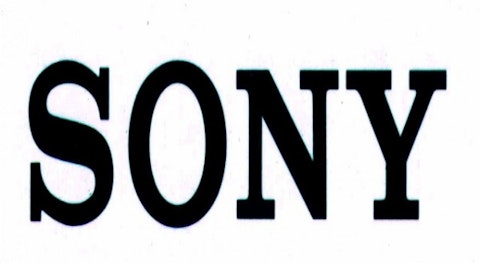The Japanese equity markets have been in a bit of a tailspin lately. However if investors are patient, there is very likely to be a lot more upside in both the Japanese equity market and in the Dollar-Yen currency pair.
Currency market

Source: FreeStockCharts
I believe that the dollar-yen currency pair may have even greater upside from the 99 level. The reasoning is pretty simple; the Bank of Japan is steadily increasing the size of its balance sheet whereas the Federal Reserve will eventually end its quantitative easing program over the next two years. Based on those fundamentals, the dollar has to appreciate to the yen. If that is the case, than the Yen will devalue which in turn inflate earnings growth for Japanese companies.
Goldman Sachs believes that by 2015, the TOPIX (Tokyo Price Index basically a stock index) will increase in value by 33.8%. Goldman Sachs believes that the dollar-yen will be in a 107 to 110 range. This implies that the dollar-yen could appreciate by an added 7 to 10% from current levels. Because the dollar yen is so volatile, like I have suggested in my previous article, investors should cost-average into a position over a long time horizon rather than trying to time the micro movement of the currency market.
Another play on the Japanese economic recovery is to buy the iShares MSCI Japan Index Fund. This implies that the iShares MSCI Japan Index Fund may have around 25% upside from current levels. The iShares MSCI Japan Index fund has a heavily diversified portfolio with around 312 stocks. The average price to earnings is 21.53 which imply that the fund could outperform the performance of the Tokyo Price Index (high earnings multiples are highly indicative of greater stock appreciation based on higher rates of outwards looking growth).
Or you can look to individual Japanese companies traded in America.
Japanese technology
Sony Corporation (ADR) (NYSE:SNE) recently won the fanfare of the media by releasing its Sony PlayStation 4 at a $100 discount relative to its competitors. While, I’m not a fan of this, I believe that the company made the decision with the intention of establishing an early lead in the console space. Microsoft Corporation (NASDAQ:MSFT), on the other hand, is more focused on appealing to its shareholders interests and has opted to keep its Xbox One at a $100 more than the PlayStation 4. I believe that Microsoft’s real upside catalyst is due to its release of Office 365 onto Mac OS X, and IOS. I estimate that business may contribute an additional $10 billion a year in annual earnings for the company.
I believe that Sony Corporation (ADR) (NYSE:SNE)’s real upside potential is in tablets, which I summarize in great detail in a previous article. The company anticipates that smart phone shipments should grow by 27 to 30% in fiscal year 2013. The tablet segment could generate an additional $600 million to $1.2 billion in net income. The fundamental strength in the company’s business is undeniable.
Going forward analysts on a consensus basis anticipate Sony Corporation (ADR) (NYSE:SNE) to grow earnings by 54.3% on average over the next five years. This is driven by growth in smart phones, tablets, currency devaluation, and cost cutting.
Comparatively Microsoft Corporation (NASDAQ:MSFT) reported a 56% growth rate in its entertainment and devices division in the most recent quarter. The company’s growth in Windows Phone 8 licenses was driven by its partnership with Nokia Corporation (ADR) (NYSE:NOK). Nokia has lost a lot of smart phone market share but with Nokia Corporation (ADR) (NYSE:NOK) using the Windows Phone 8 operating system, maybe it can hold on, and fight back against the iOS and Android ecosystems.
Japanese financials
Nomura Holdings, Inc. (ADR) (NYSE:NMR) is a financial institution that investors have to watch out for. The company recently saw an acceleration in growth, in the first quarter of 2013, which is the fourth quarter for Nomura Holdings, Inc. (ADR) (NYSE:NMR). The company’s fiscal year ends on March 31.
The company saw 14% year-over-year growth in revenue for its 2013 fiscal year. The company also reported 320% year-over-year growth in income before income taxes. The company has been able to grow earnings significantly because of some modest cost cutting, currency effects, and some organic growth in its core businesses.
Going forward analysts on a consensus basis anticipate the company to grow earnings by 700% in the 2014 fiscal year, and 28.10% in the 2015 fiscal year (both end on March 31st). The company’s growth is staggering, and at just a 25.6 earnings multiple, Nomura Holdings, Inc. (ADR) (NYSE:NMR) is extremely tempting. The company also compensates its investors with a 1.15% dividend yield.
Conclusion
I believe that investors should position themselves long in Japanese equities. The economy is likely to recover, and while the third arrow of Abenomics fell short of immigration reform and corporate tax cuts. The economy will be on stable footing due to stimulus spending, reform in other aspects of the economy, and an asset purchase program at an unprecedented scale by the Bank of Japan.
Investors should buy the dollar-yen currency pair on the dip, and accumulate over time. I also find both Sony Corporation (ADR) (NYSE:SNE) and Nomura Holdings, Inc. (ADR) (NYSE:NMR) lucrative and compelling investment opportunities for those who are willing to take the risk. Sony Corporation (ADR) (NYSE:SNE) will grow earnings faster than Microsoft Corporation (NASDAQ:MSFT). If an investor wants diversification, then an investor should consider buying the iShares MSCI Japan Index Fund.
Alexander Cho has no position in any stocks mentioned. The Motley Fool owns shares of Microsoft Corporation (NASDAQ:MSFT).
The article Japanese Yen Puts Sony at an Advantage Over Microsoft originally appeared on Fool.com.
Alexander is a member of The Motley Fool Blog Network — entries represent the personal opinion of the blogger and are not formally edited.
Copyright © 1995 – 2013 The Motley Fool, LLC. All rights reserved. The Motley Fool has a disclosure policy.







